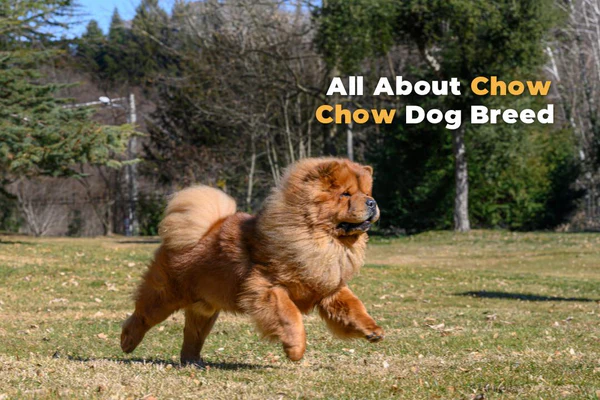Complete Guide to Dachshund: Characteristics, Training, Care, Pros and Cons, and Price
The Dachshund, often affectionately referred to as a “wiener dog,” is one of the most iconic and recognizable dog breeds worldwide. Known for its long body and short legs, the Dachshund’s distinct appearance matches its playful and curious personality. Originally bred for hunting small game like badgers, this breed has since become a beloved family companion. In this comprehensive guide, we’ll cover everything you need to know about Dachshunds, from their characteristics and behavior to training tips, care advice, and the cost of owning one.
1. Introduction to Dachshund
📜 History and Origin
- Country of Origin: Germany
- Original Purpose: Hunting small game, such as badgers
- AKC Recognition: Dachshunds were officially recognized by the American Kennel Club (AKC) in 1885.
- Name Meaning: “Dachshund” comes from German, meaning “badger dog,” which reflects their original purpose of hunting badgers.
The Dachshund was initially bred to dig into burrows and hunt badgers, which required strength and determination. Over time, their friendly, energetic nature made them excellent companions, and they have become one of the most popular dog breeds in the world.
📐 Physical Traits
- Size: Small
- Height: 5-9 inches (13-23 cm)
- Weight: 11-32 pounds (5-15 kg), depending on type (standard or miniature)
- Coat: Short, long, or wiry (three coat types)
- Lifespan: 12-16 years
- Colors: Black, brown, tan, red, cream, and dapple variations
Dachshunds come in three different coat types: smooth, longhaired, and wirehaired. They are generally compact with a long, sleek body and short legs, giving them a unique and adorable look.
2. Dachshund Behavior and Personality
🧠 Temperament
Dachshunds are spirited, curious, and independent dogs. They are known for being brave and confident, often acting much larger than they are. They tend to be friendly with family members, but can be somewhat reserved or wary around strangers. Despite their hunting instincts, they are often very affectionate and loyal to their owners.
- Curious and Playful: They enjoy exploring and can be very inquisitive. If not mentally stimulated, they might get into mischief.
- Stubbornness: Dachshunds can be a bit stubborn and independent, making training a challenge at times.
- Loyal and Affectionate: They are loyal to their families and tend to form strong bonds with their owners.
- Protective: Despite their small size, they can be quite protective of their territory and loved ones.
🐶 Socialization
Socialization from an early age is key to raising a well-rounded Dachshund. While they can be friendly and enjoy spending time with other dogs, early socialization will help them feel more comfortable in a variety of settings.
3. How to Train a Dachshund
🏠 Early Training
Training your Dachshund early is important to prevent unwanted behaviors. Although they are intelligent, they can be quite stubborn, so consistency and patience are key.
- Potty Training: Start potty training as soon as you bring your Dachshund home. Consistency is crucial. Take them outside frequently, especially after meals or naps.
- Basic Commands: Teach basic commands like “sit,” “stay,” “come,” and “down.” Use positive reinforcement such as treats and praise.
- Leash Training: Dachshunds tend to pull on the leash due to their hunting instincts, so leash training should begin early. A harness can be beneficial to avoid putting pressure on their neck.
- Crate Training: Crate training helps with potty training and provides your dog with a safe space when you’re not home.
🧩 Mental Stimulation
Dachshunds need mental stimulation to prevent boredom. Interactive toys, puzzle feeders, and regular playtime will help keep your dog mentally sharp. They enjoy tasks that challenge their intelligence, so consider teaching them tricks and games that engage their minds.
🦴 Addressing Stubbornness
Dachshunds can be independent and stubborn, so avoid being too harsh in training. Use positive reinforcement techniques, and be patient as they learn at their own pace. Keep training sessions short but frequent, and always end on a positive note.
4. How to Care for a Dachshund
🍽️ Feeding
Dachshunds have a small to medium-sized body, so they don’t require large amounts of food. A high-quality dog food that is appropriate for their age, size, and activity level should be provided.
- Portion Control: Due to their tendency to become overweight, portion control is essential. Overfeeding can lead to obesity, which is harmful to their health, especially because of their long backs.
- Treats and Snacks: Treats should be given in moderation and used primarily for training purposes. Always make sure treats are healthy and low in calories.
🐕 Exercise and Playtime
Dachshunds may be small, but they still require regular exercise. Aim for at least 30 minutes to an hour of exercise each day. Their short legs may limit their stamina, so it’s better to break up exercise into multiple sessions.
- Walks: Regular walks are important for their physical health.
- Playtime: Dachshunds love interactive play, such as fetch, tug-of-war, and puzzle games.
- Mental Stimulation: As mentioned before, these dogs enjoy mental challenges, so try activities that encourage problem-solving.
🧼 Grooming
Grooming needs vary depending on the type of coat your Dachshund has.
- Smooth Coat: Needs minimal grooming. Brush weekly to remove dead hair and prevent matting.
- Longhaired Coat: Requires more frequent grooming. Brush every 2-3 days to prevent tangles and mats.
- Wirehaired Coat: Requires regular hand-stripping or professional grooming every 4-6 months.
- Nail Trimming: Keep nails trimmed to prevent injury.
- Ear Care: Check their ears regularly for dirt or infection, especially since Dachshunds are prone to ear issues.
🏥 Health Care
Dachshunds are generally healthy but are prone to certain health issues, particularly due to their long backs. Common conditions include:
- Intervertebral Disc Disease (IVDD): The long spine can lead to back problems, so avoid activities that involve jumping from high places.
- Obesity: Dachshunds are prone to weight gain, which can exacerbate health problems. Maintain a healthy diet and exercise regimen.
- Dental Health: Brush their teeth regularly to avoid dental issues like tartar buildup and gum disease.
Regular vet checkups are essential for keeping your Dachshund healthy and up-to-date on vaccinations and preventative care.
5. Pros and Cons of Owning a Dachshund
✅ Pros
- Loyal and Affectionate: Dachshunds are devoted to their families and enjoy being around their loved ones.
- Intelligent: They can be trained to do tricks and tasks with patience and consistency.
- Good for Apartment Living: Their small size makes them great for apartment living, as long as they get enough exercise.
- Playful Nature: Dachshunds are playful and love interactive games, making them fun companions for families.
- Low Maintenance Grooming (for smooth-coated): Smooth-coated Dachshunds require less grooming compared to long-haired or wire-haired varieties.
❌ Cons
- Stubbornness: They can be difficult to train due to their independent nature.
- Health Issues: Dachshunds are prone to back problems and obesity if not properly cared for.
- Digging Instincts: Due to their history as hunting dogs, they may dig in the yard or attempt to escape if not properly supervised.
- Not Great with Small Animals: Due to their hunting instincts, they may have a high prey drive toward small animals like rodents and birds.
6. Price of a Dachshund
💵 Price Range for a Dachshund
The cost of a Dachshund varies depending on the breeder, location, and whether the dog is a show-quality or pet-quality dog.
| Type of Dachshund | Price Range (USD) |
|---|---|
| Pet Quality | $500 – $1,500 |
| Show Quality | $1,500 – $3,000+ |
| Adoption | $150 – $400 |
Dachshund puppies from reputable breeders are generally more expensive, especially those with champion bloodlines. If you adopt from a rescue or shelter, the price is typically lower, but you may still incur adoption fees and medical costs.
🏥 Ongoing Costs
In addition to the upfront cost of purchasing or adopting a Dachshund, you should also budget for ongoing care, including:
- Food: $200 – $400 per year
- Vet visits and vaccinations: $300 – $500 per year
- Grooming and maintenance: $100 – $300 per year
- Training and enrichment: $100 – $200 per year
Conclusion
Dachshunds are small but mighty dogs with big personalities. Their affectionate and loyal nature makes them great family companions, while their independence and determination can make training a challenge. With the right care, training, and attention to health, a Dachshund can be a loving and fun addition to any home. If you’re ready for an energetic and playful companion, a Dachshund might be the perfect breed for you!




